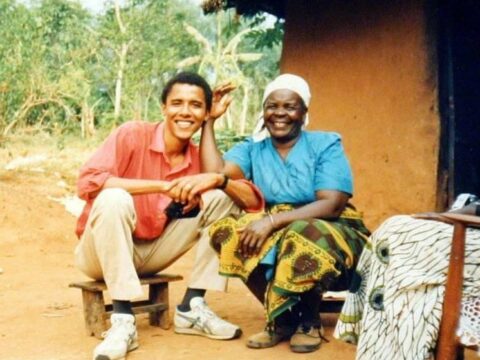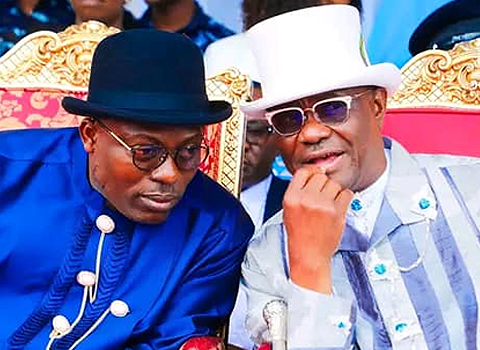
On 12 March 2021, Goodwill Zwelithini died aged 72 after being admitted to hospital for a diabetes-related illness. Since then, a complicated series of legal battles have ensued.
FILE: Zulu King Misuzulu (left) and Prince Simakade Zulu. Pictures: Jacques Nelles/Eyewitness News; Prince Lungalomndeni Zulu
JOHANNESBURG – The Gauteng High Court has found that President Cyril Ramaphosa did not act in accordance with the law when certifying Prince Misuzulu KaZwelithini as Amazulu King.
In a ruling delivered by Judge Norman Davis, he found that Ramaphosa disregarded certain sections of the Leadership Act to appoint an investigative panel – in the event there is a dispute relating to the kingship.
ALSO READ:
Davis emphasised that this ruling was not to determine who was the rightful heir to the Zulu throne between KaZwelithini or the applicant in this case, Prince Simakade Zulu.
Davis said the matter had already been decided by Judge Isaac Madondo during his March 2022 ruling when he declared KaZwelithini as the rightful king.
Davis said he was adjudicating over a review application, and not an appeal.
The review sought by Simakade was whether “King Misuzulu KaZwelithini Zulu has been appointed as king in terms of Zulu custom, and the second was whether the President had correctly recognised the present king in terms of the Traditional and Khoi-San Leadership Act 3 of 2019 (the Leadership Act).”
SUCCESSION BATTLE LOOMS
On 12 March 2021, Goodwill Zwelithini died aged 72 after being admitted to hospital for a diabetes-related illness.
His death would trigger a succession battle for the Zulu throne inside the royal family.
In his will, Zwelithini wrote it would be his dying wish for his wife, Queen Mantfombi Zulu, to be appointed as regen.
However, Mantfombi’s reign would last only a month, after she died on 29 April of the same year.
At the heart of the court application is a meeting which took place on 14 May, where about 130 members of the royal family nominated Prince Misuzulu KaZwelithini as the next Zulu King.
However, as Davis noted, this meeting was disputed formally through a letter dated 3 June 2021 by Zwelithini’s sister, the late Princess Thembi Zulu.
“She contended that a preceding meeting of 7 May 2021 did not amount to a meeting of the Zulu Royal Family, and that the meeting of 14 May 2021 was called under false pretences, and that its agenda did not indicate that it was called for purposes of identifying a successor to the throne,” wrote Davis.
Thembi also raised issue with Buthelezi’s conduct during the meeting, alleging that certain members who did not agree with Misuzulu’s nomination were shut down.
Around August 2021, Davis said after several people approached Ramaphosa to mediate the royal dispute, the President instead chose to appoint a mediation panel that would be headed up former KwaZulu-Natal Premier Willies Mchunu.
During the time of the mediation, three court applications were launched at the Pietermaritzburg High Court, seeking to challenge the validity of Zwelithini’s will and interdict the KwaZulu-Natal Premier from recognising Misuzulu as king.
Early in 2022, Mchunu released a 43-page report of the mediation process, in which he recommended to Ramaphosa to wait for all court processes to conclude before certifying a king.
The report also recommended medium to long term mediation, as the royal house was “broken”.
COURT BATTLES BEGIN
On 12 March 2022, the Pietermaritzburg High Court Judge Isaac Madondo dismissed all the three applications, clearing the way for Misuzulu to ascend to the throne.
On the same day, Ramaphosa received a letter from the late Zulu Prime Minister, Prince Mangosuthu Buthelezi, saying Mantfombi had chosen Misuzulu as king, and that the royal family had convened and unanimously confirmed this decision.
It was only four days after the Madondo judgement that Ramaphosa officially certified Misuzulu as king.
However, as Davis noted in his judgement, the 15-day period for application for leave to appeal had not lapsed.
In fact, Davis said, a successful leave for appeal was lodged on 18 March, within the 15-day period.
In his application, Simakade argued that the Leadership Act stated that if there was a dispute for the kingship, the President had to appoint an investigation panel to resolve this before certification.
“Although the attempt at mediation, being the route followed by the Minister in appointing the ad-hoc Mediation Panel was a laudable one, it was not one contemplated in the Leadership Act,” wrote Davis in his judgement.
“Had mediation successfully taken place, that might have ended the dispute, and would have justified the existence of the Mediation Panel.”
Davis found there was a justifiable dispute that would have necessitated the appointment of an investigative panel.
The judge ruled that Ramaphosa “erred in law” by failing to perform his duties as required by legislation.
David ruled that the certification of Misuzulu is “unlawful and invalid”, and for Ramaphosa to appoint an investigative panel to probe whether all Zulu customary laws and practices were followed in the nomination of a Zulu king.






Recent Comments